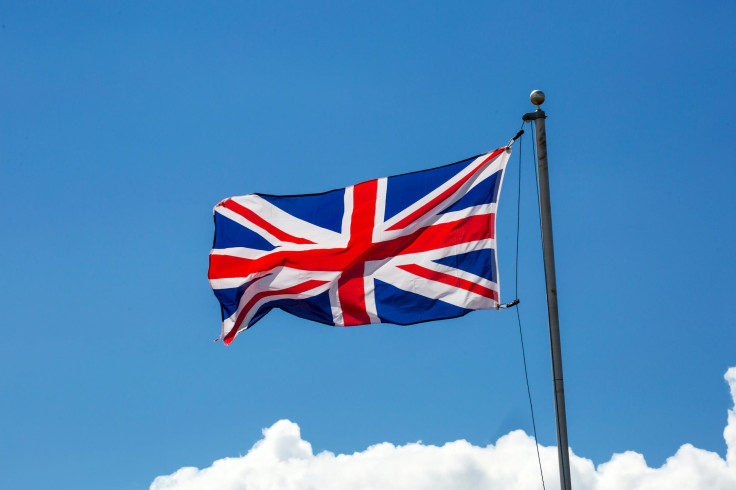UK officially joins CPTPP trade group, opening doors to new opportunities
UK formally joins CPTPP trade group, opening doors to new opportunities for British businesses with reduced tariffs and increased investment.

On a momentous occasion, Business and Trade Secretary Kemi Badenoch signed the treaty to accede to the Comprehensive and Progressive Agreement for Trans-Pacific Partnership (CPTPP) trade group in New Zealand today.
This marks the beginning of the United Kingdom's membership in a modern and ambitious trade deal encompassing 12 economies across Asia, the Pacific and now Europe.
The signing ceremony, held in Auckland, saw the participation of several notable figures, including New Zealand Trade Minister Damien O'Connor, Canadian Trade Minister Mary Ng, Japanese Minister for Economic Revitalisation Goto Shigeyuki and Australian Deputy Trade Minister Tim Ayres. With this formal confirmation, the UK will now seek to ratify the agreement, subject to parliamentary scrutiny, while other CPTPP countries complete their own legislative processes.
This significant development comes in conjunction with a newly released government report that highlights the employment impact of CPTPP member nations on the UK. According to the report, one in every 100 UK workers was employed by a business headquartered in a CPTPP country in 2019, amounting to over 400,000 jobs nationwide.
The accession to CPTPP is expected to attract further investment in the UK from member nations, which already amounted to £182 billion in 2021. The agreement provides crucial protections for investors, guaranteeing a conducive environment for economic growth and development.
Various industry leaders have expressed their enthusiasm regarding the opportunities presented by UK membership in CPTPP. Ian Stuart, CEO of HSBC UK, emphasised the potential for British businesses to connect with thriving markets for startups, innovation and technology. Stuart emphasised that HSBC UK, as a leading global trade bank, is committed to supporting UK businesses in seizing these opportunities and unlocking their full potential.
Cath White, Head of International at Belvoir Farm, underscored the positive implications of UK accession to CPTPP for trade. She highlighted that more than 99 per cent of UK goods exported to CPTPP member countries would be eligible for zero tariffs, reducing administrative and commercial barriers. White noted that this would allow UK producers to showcase their products on a global scale, facilitating the growth of British brands.
Ian Galbraith, Group Strategy Director at Mott MacDonald, emphasised the positive implications for the engineering and architecture sectors.
He commended the ambitious services and procurement chapters of the agreement, which promote professional competence and establish fair competition rules. Galbraith added that these provisions would enable firms like Mott MacDonald to secure and service new contracts across the diverse CPTPP countries.
Secretary Kemi Badenoch expressed her delight at signing the deal and highlighted the enormous benefits it would bring to British businesses. She noted that the UK's independent trading status allowed it to join this forward-looking trade bloc, providing unparallelled access to a market of over 500 million people. Badenoch emphasised the positive impact on the UK economy and the existing jobs supported by CPTPP-owned businesses throughout the country.
The report accompanying the signing ceremony revealed further insights into the economic significance of CPTPP. It stated that CPTPP investment contributed to over £240 billion in turnover in London, £35 billion in the South East and £18 billion in the East of England.
Moreover, it created 26,000 jobs in 2021 and 2022, with 75 per cent of employment in CPTPP-owned businesses located outside of London. Notably, the manufacturing sector saw one in 25 jobs supported by CPTPP countries, while the North East region accounted for one in 50 jobs.
The United Kingdom's membership in CPTPP carries immense strategic significance, as it becomes the first European member and the first new member since the trade group's inception. This achievement would have been impossible had the UK remained in the EU. With the UK on board, CPTPP's combined GDP reaches an impressive £12 trillion, accounting for approximately 15 per cent of global GDP.
The government will now proceed with the necessary steps to bring the agreement into force, expected to be completed next year. Membership in CPTPP will grant the UK access to an extensive market, as more than 99 per cent of current UK goods exports to CPTPP countries will be eligible for zero tariffs. This will benefit various sectors, including dairy farming, where reduced tariffs on cheese and butter exports to Canada, Chile, Japan and Mexico will create new opportunities.
The CPTPP agreement acts as a gateway to the wider Indo-Pacific region, projected to be the hub of global growth and home to a significant portion of the world's middle-class consumers. This presents British businesses with vast potential and supports job creation.
The UK's accession to CPTPP signifies a new era of international trade for the country, as it joins a dynamic and forward-looking trade bloc. The doors to new opportunities have been opened, and the government, industry leaders and businesses are eagerly embracing the prospects that lie ahead.
© Copyright IBTimes 2025. All rights reserved.






















